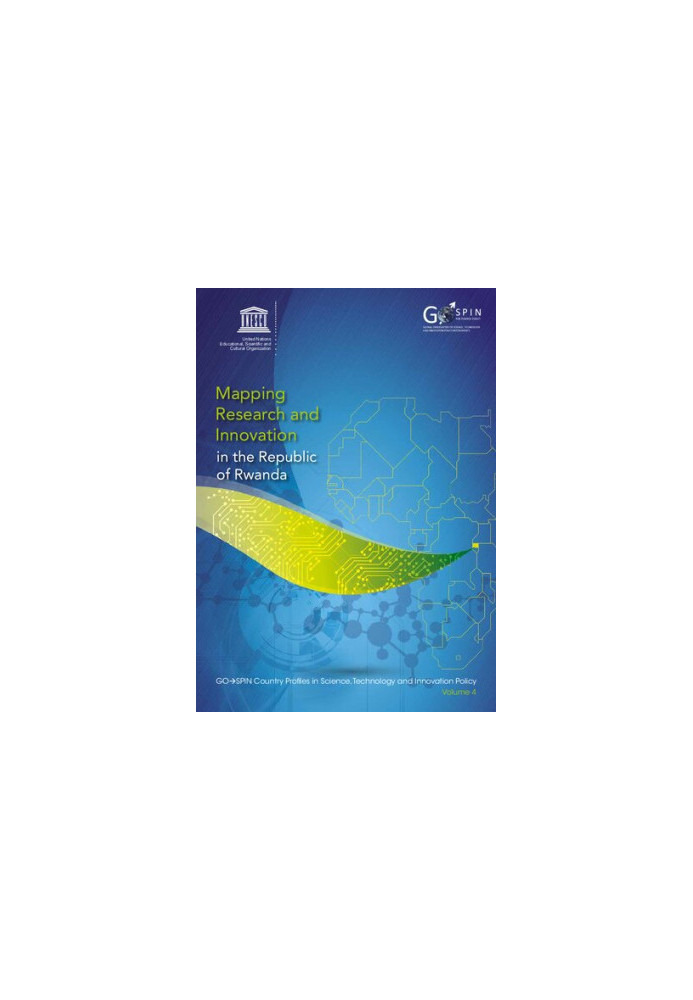Mapping Research and Innovation in the Republic of Rwanda
 Моментальне завантаження
Моментальне завантаження
після оплати (24/7)
 Широкий вибір форматів
Широкий вибір форматів
(для всіх пристроїв)
 Повна версія книги
Повна версія книги
(в т.ч. для Apple та Android)
The growing complexity of science and innovation systems and the interface with society have beenaccompanied by a more complex policy environment. This results in a need for better co-ordination andcoherence at national level. One of the most crucial factors is the increasingly global nature of the issueswith which national policy-makers are confronted. In a whole series of areas, such as the environment,telecommunications, health, energy, education and intellectual property, it no longer makes much senseto construe problems in purely sectoral and national terms. In a world that is becoming daily moreinterdependent, policy-making is inevitably assuming an increasingly transversal and global dimension. Inthis context, science, technology and innovation (STI) policy systems have emerged as interconnectionsbetween knowledge, values, national and international socio-economic, environmental, technological andorganizational components.UNESCO has a long tradition of supporting Member States in policy development. With the convergenceof S&T fields, the need to harness science, engineering, technology and innovation (SETI) for human andeconomic development and the transnational nature of today’s challenges, STI policy processes havebecome a much more complex undertaking.It is our vision that STI policies are transversal, cross-cutting policies that support and build the structuralpillars for sustainable development. Therefore, UNESCO is conscious that monitoring and evaluating theimpact of explicit and implicit policies and instruments is part of our work in supporting the design andimplementation of STI frameworks in our Member States.Mapping Research and Innovation in the Republic of Rwanda is the fourth in a series of a series of countryprofiles prepared by the Global Observatory of Science, Technology and Innovation Policy Instruments(GOàSPIN), a new UNESCO initiative.The GOàSPIN programme is helping Member States to reform and upgrade national science systemsand governance, and to build capacity to monitor and evaluate performance through SETI and socialindicators. In this way, the scope of standard SETI assessment can be widened, to take into accountcountry-specific contexts, as well as emerging knowledge of technological advances that contributeto sustainable development. Complementing efforts to promote evidence-based SETI policy-making,GOàSPIN offers a good basis for the promotion of scientific and technological foresight studies.Through the GOàSPIN programme, UNESCO’s Division of Science Policy and Capacity Building isworking as a standard-setter, assisting in the elaboration of guidelines for SETI policy formulation, reviewand reforms, including monitoring and evaluation of policies and programmes. In this context, scientificadvisory systems for governments and parliaments are necessary, as well as the availability of a wide rangeof scientific assessments to inform policy- and decision-makers and to bridge the gap between scienceand policy.The Division of Science Policy and Capacity building has been collaborating with the Ministry of Educationof the Republic of Rwanda with the support of the Embassy of Sweden in Kigali and the SwedishInternational Development Cooperation Agency (SIDA) to produce this country profile.
LF/661810/R
Характеристики
- ФІО Автора
- Guillermo A. Lemarchand and April Tash
eds. - Мова
- Англійська
- Серія
- GO-SPIN Country Profiles in Science, Technology and Innovation Policy
- ISBN
- 9789231001260
- Дата виходу
- 2015
- Том
- 4

















